Seminario Virtual de Investigadores

| Miércoles de 12:00 a 14:00 |
| Informes: contacto@filosoficas.unam.mx |
Abril 2020
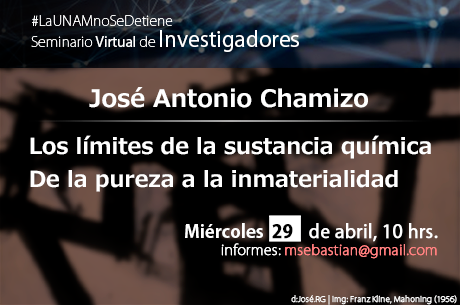 29 José Antonio Chamizo (Cambio de Adscripción Fac de Química) [10:00 a 12:00]
29 José Antonio Chamizo (Cambio de Adscripción Fac de Química) [10:00 a 12:00]
“Los límites de la sustancia química. De la pureza a la inmaterialidad”
#LaUNAMnoSeDetiene
Mayo 2020
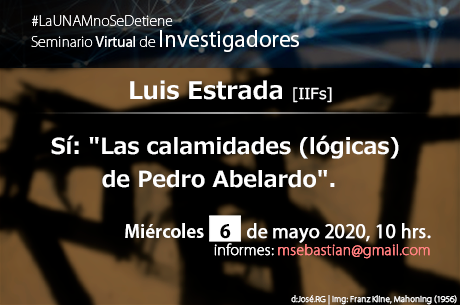 6 Luis Estrada (IIFs) [10:00 a 11:30]
6 Luis Estrada (IIFs) [10:00 a 11:30]
Sí: "Las calamidades (lógicas) de Pedro Abelardo".
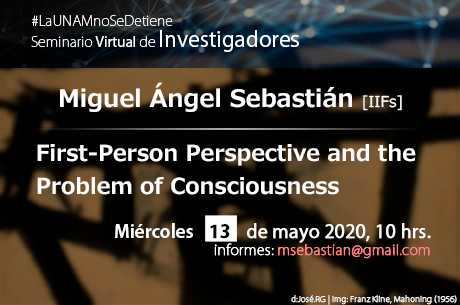 13 Miguel Ángel Sebastián (IIFs) [10:00 a 12:00]
13 Miguel Ángel Sebastián (IIFs) [10:00 a 12:00]
“First-Person Perspective and the Problem of Consciousness
La Perspectiva de primera Persona y el Problema de la Consciencia”
|
“Is There Moral Magic in the Word “Right”? On Rights, Interests, and Wrongs”
|
|
Edgar González (IIFs) y Axel Barceló (IIFs) “El enigma del juicio falso en el Teeteto de Platón” |
Agosto 2020
[12:00 a 14:00] Informes: contacto@filosoficas.unam.mx
|
Transmisión en vivo FilosoficasUnam Efraín Lazos (IIFs) "Esquemas matemáticos en Kant"
|
Addison Ellis (Posdoc IIFs)
“Kant's Noumenal Ignorance Without Contrary”
|
||||
Miércoles 26
CANCELADO
Andrea Onofri (Universidad de San Luis Potosí)
“De la identidad a la coordinación”
Septiembre 2020
|
Miércoles 2 | SEP
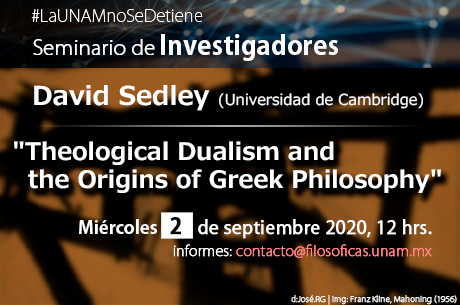
David Sedley (Universidad de Cambridge) "Theological Dualism and the Origins of Greek Philosophy" Moderador: Edgar González Varela |
Miércoles 9 | SEP
Sarah Hutton (Universidad de York) "Filling the Gaps: Women, Philosophy, and the History of Philosophy" Modera: Erika Torres |
|
Miércoles 23 | SEP
"Patrones tabulares" Modera: Diana Rojas Resumen: En "Patrones inferenciales", Axel Barceló desarrolla un método para obtener reglas de deducción natural a partir de las tablas de verdad bivaluadas usuales (y viceversa). Con su método, Barceló obtiene un sistema de deducción natural para la lógica clásica. Sin embargo, es bien sabido que las tablas de verdad bivalentes usuales no inducen la lógica clásica sin algunos supuestos adicionales muy sustanciales y ajenos a la representación tabular. En esta plática muestro qué sistema de deducción natural se obtiene siguiendo el método de Barceló sin esos supuestos adicionales y las consecuencia que eso tiene para la solución que Barceló da al problema de tonk.
|
||||
|
Miércoles 30 | SEP
"A War on Science? The Death of Expertise? Rethinking Vaccine Hesitancy and Refusal"
Maya Goldenberg Department of Philosophy University of Guelph Because vaccine hesitancy has been framed as a problem of public misunder- standing of science, vaccine outreach has focused on educating the misguided publics. Where efforts to change vaccine attitudes have failed, cynicism has bred the harsher view that the publics are anti-science and anti-expertise. Yet research into science and the publics lends strong support to the view that pub- lic attitudes regarding scientific claims turn crucially on epistemic trust rather than engagement with science itself. It follows that it is poor trust in the expert sources that engender vaccine hesitancy. Modera: María Martínez-Ordaz
|
||||
Octubre 2020
|
Jessica Moss (Universidad de Nueva York) “Aristotle´s Theory of Knowledge”
|
||
|
Paulette Dieterlen (IIFs) ¿Por qué no podemos todo con dinero? “Mercado y moral”
|
||||
|
Miércoles 21 | OCT
CANCELADO
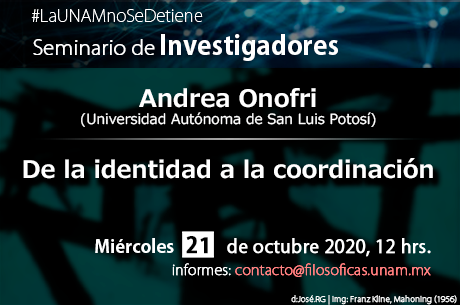
Andrea Onofri (Universidad Autónoma de San Luis Potosí) “De la identidad a la coordinación”
|
|
Miércoles 28 | OCT
“Admiration, Exemplarity, and Judicial Virtue” Abstract. A principal venue for the acquisition of judicial virtue is the emulation of exemplary judges. Such emulation is triggered by the emotion of admiration, which thus plays a critical role in the development of judicial virtue. In this chapter, I first examine the emotion of admiration. Next, I explain how it motivates the emulation of exemplars and ultimately leads to the acquisition of judicial virtue as well as the ways in which this process from admiration to virtue may go wrong. In addition to it being crucial for emulation, admiration also plays important social functions within the judiciary. After explaining the beneficial social effects of admiration, the chapter concludes by discussing some implications for legal education.
|
Noviembre 2020
|
Miércoles 4 | NOV 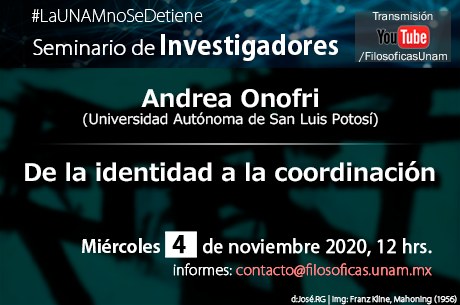
Andrea Onofri (Universidad Autónoma de San Luis Potosí) “De la identidad a la coordinación” |
||||
|
|
|
Miércoles 11 | NOV
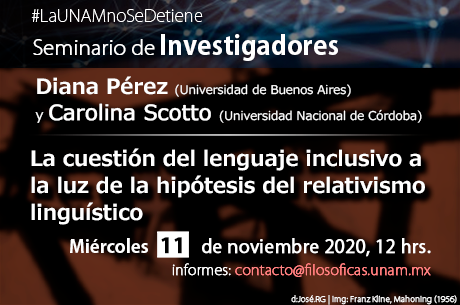
Diana Pérez (Universidad de Buenos Aires) “La cuestión del lenguaje inclusivo a la luz de la hipótesis del relativismo linguístico”
|
||||
|
Miércoles 18 | NOV
Oliver R. Marshall ( Estancia Posdoctoral IIFs) "Magnitudes, Ratios and Real Numbers"
|
||||
|
Miércoles 25 | NOV
"Zozobra: the feeling of not belonging"
|
||||
| Miércoles de 12:00 a 14:00 |
| Informes: contacto@filosoficas.unam.mx |
Aviso de privacidad
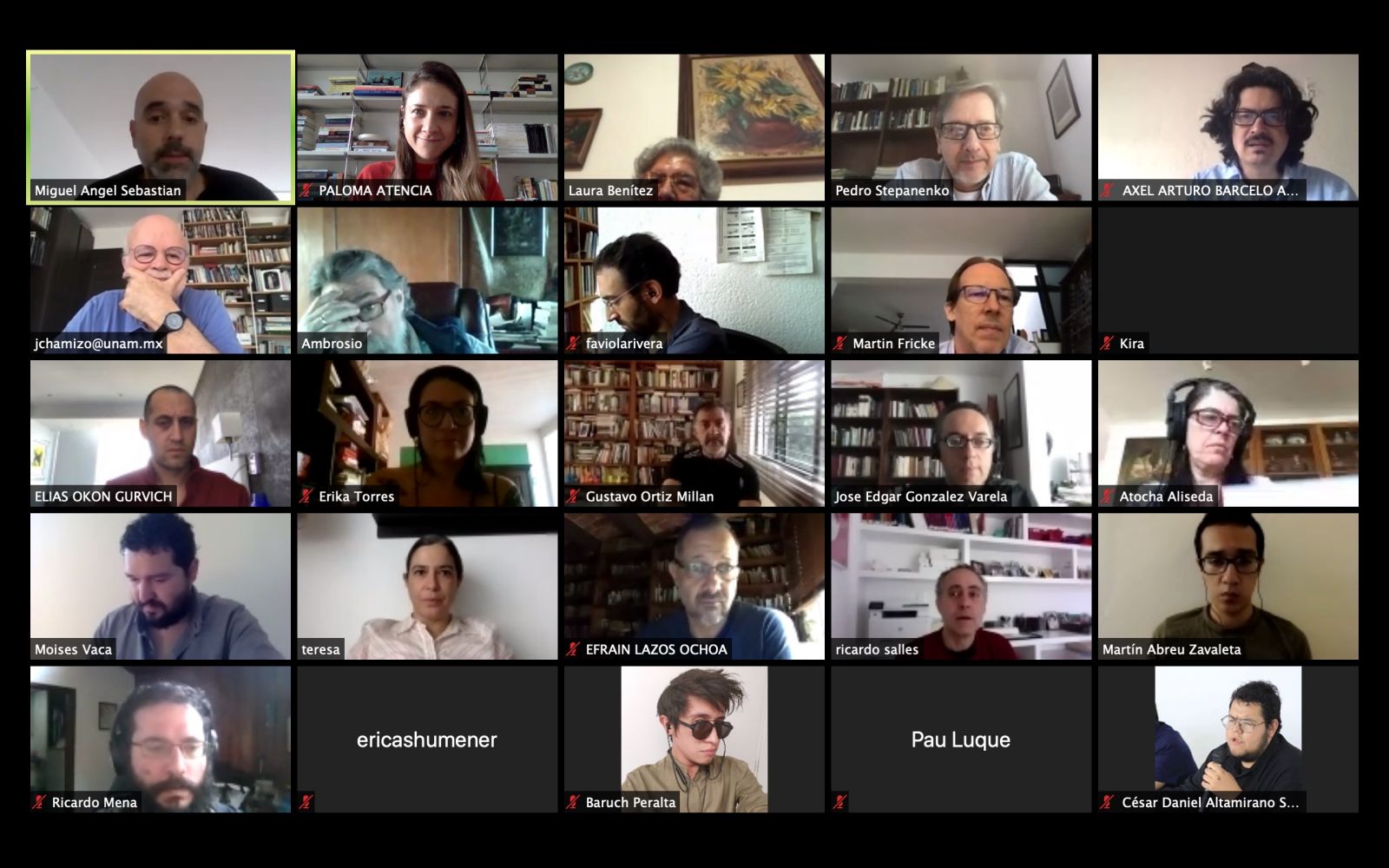
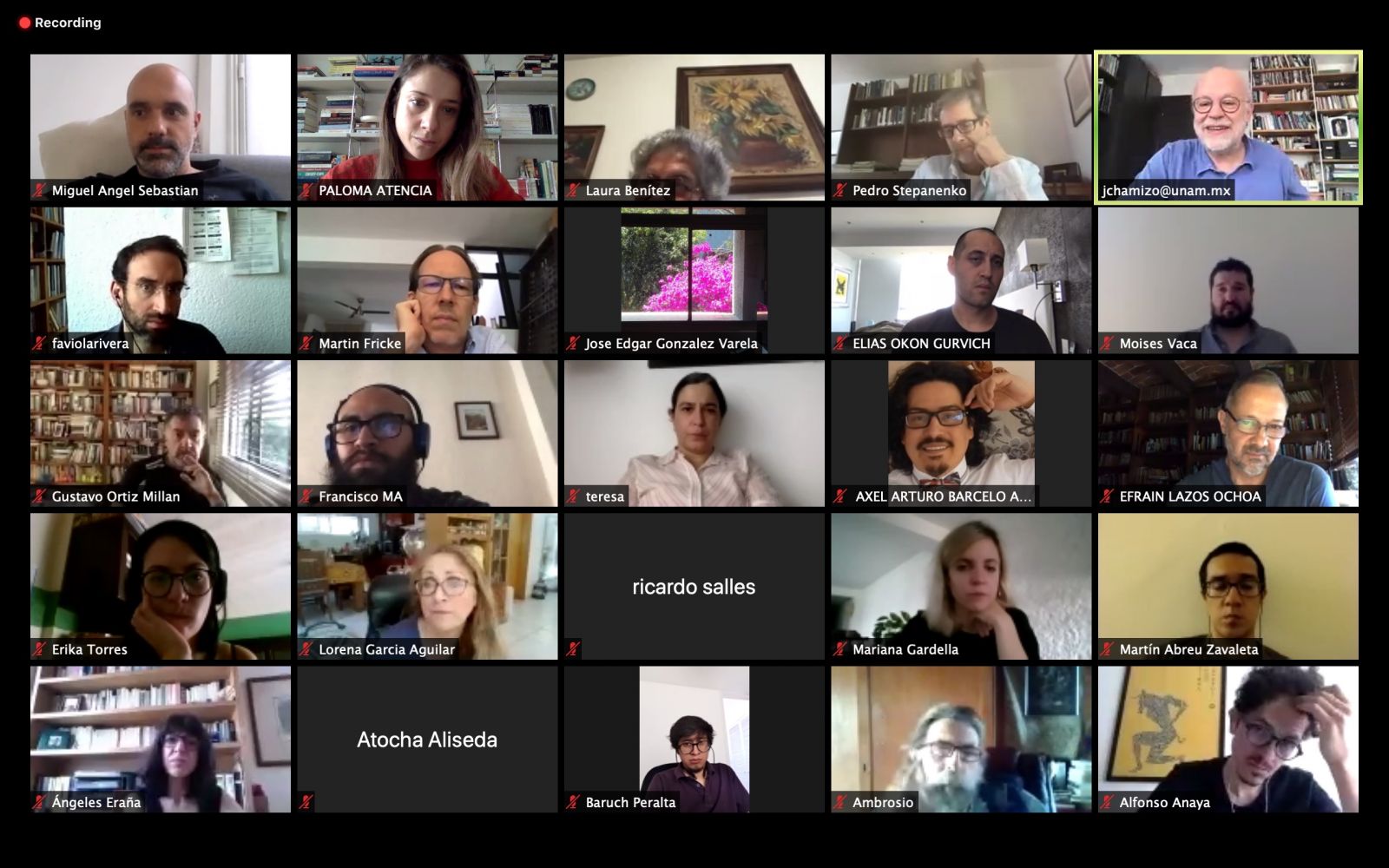
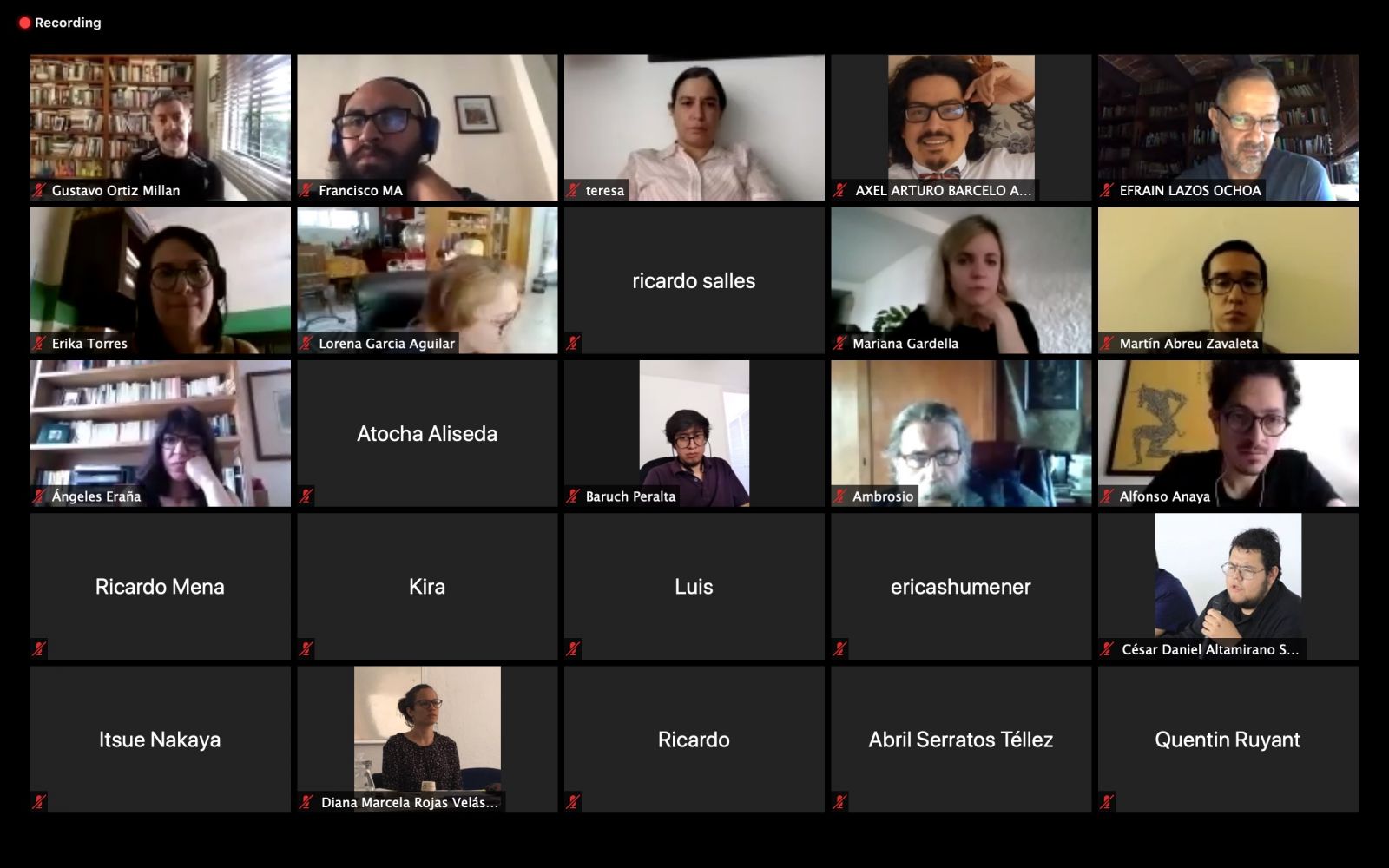
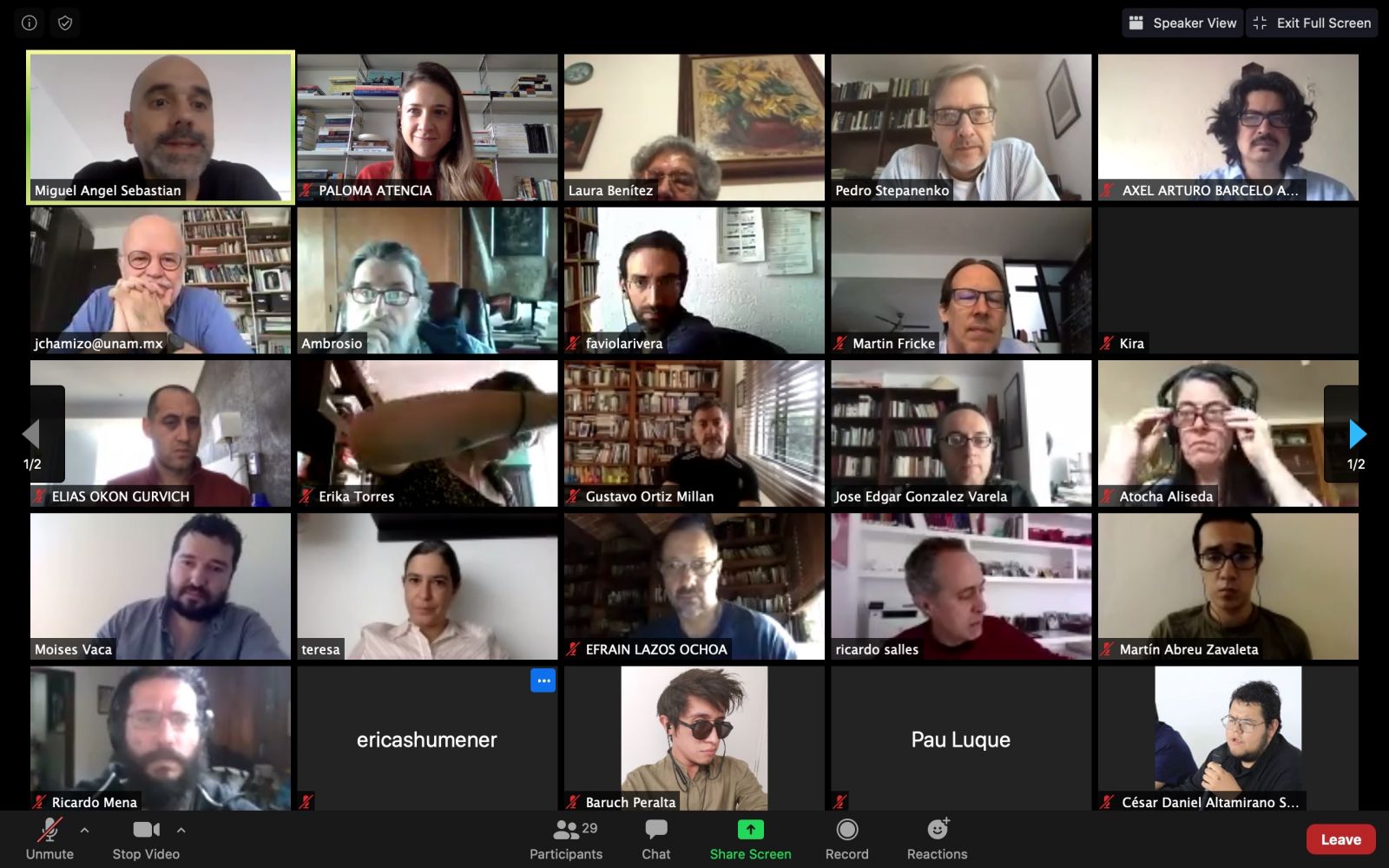
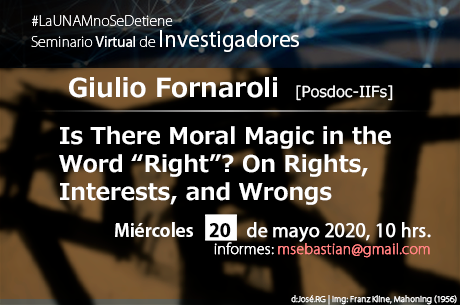
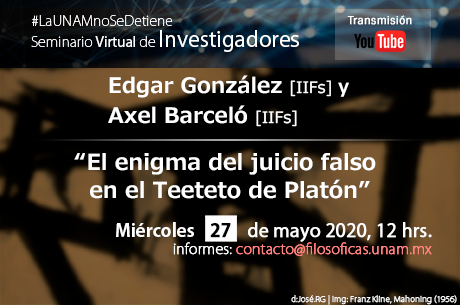
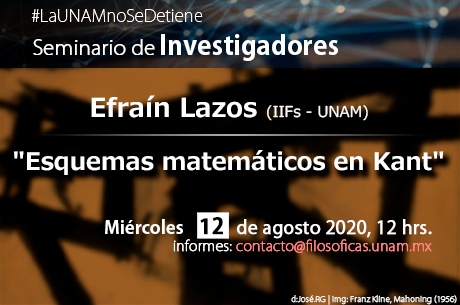

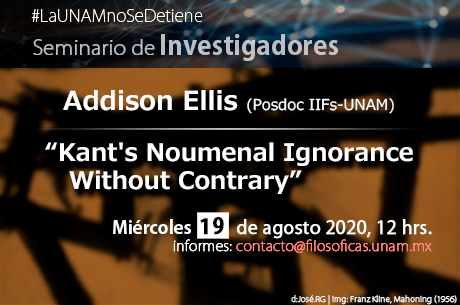
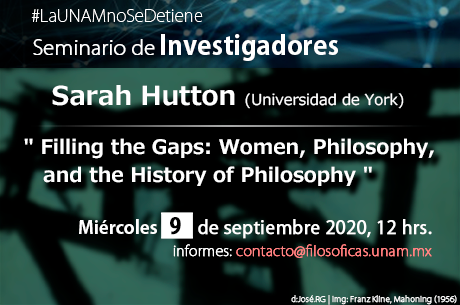
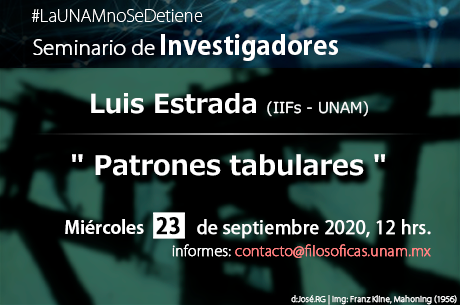
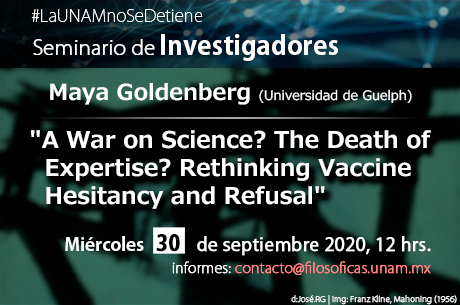
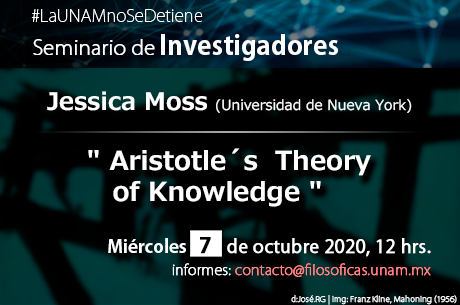
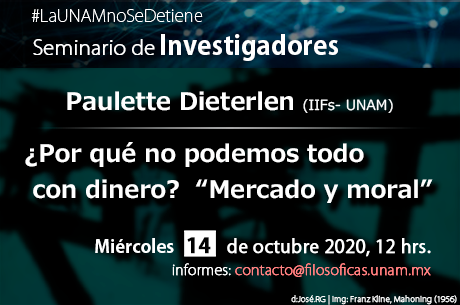
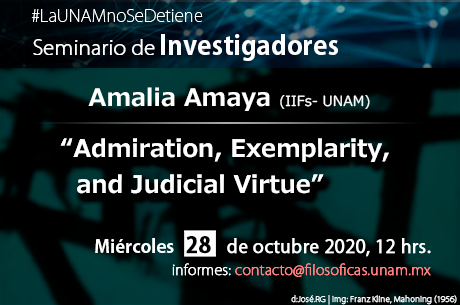
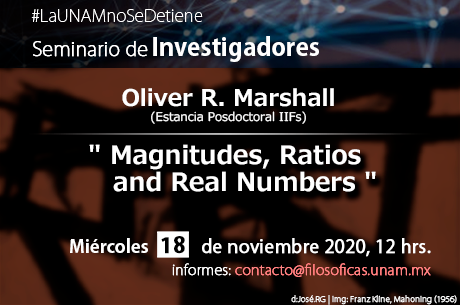
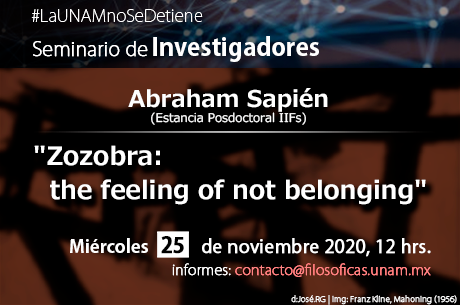



 Circuito Maestro Mario de la Cueva s/n, Ciudad Universitaria, C.P. 04510, Coyoacán México, CDMX
Circuito Maestro Mario de la Cueva s/n, Ciudad Universitaria, C.P. 04510, Coyoacán México, CDMX